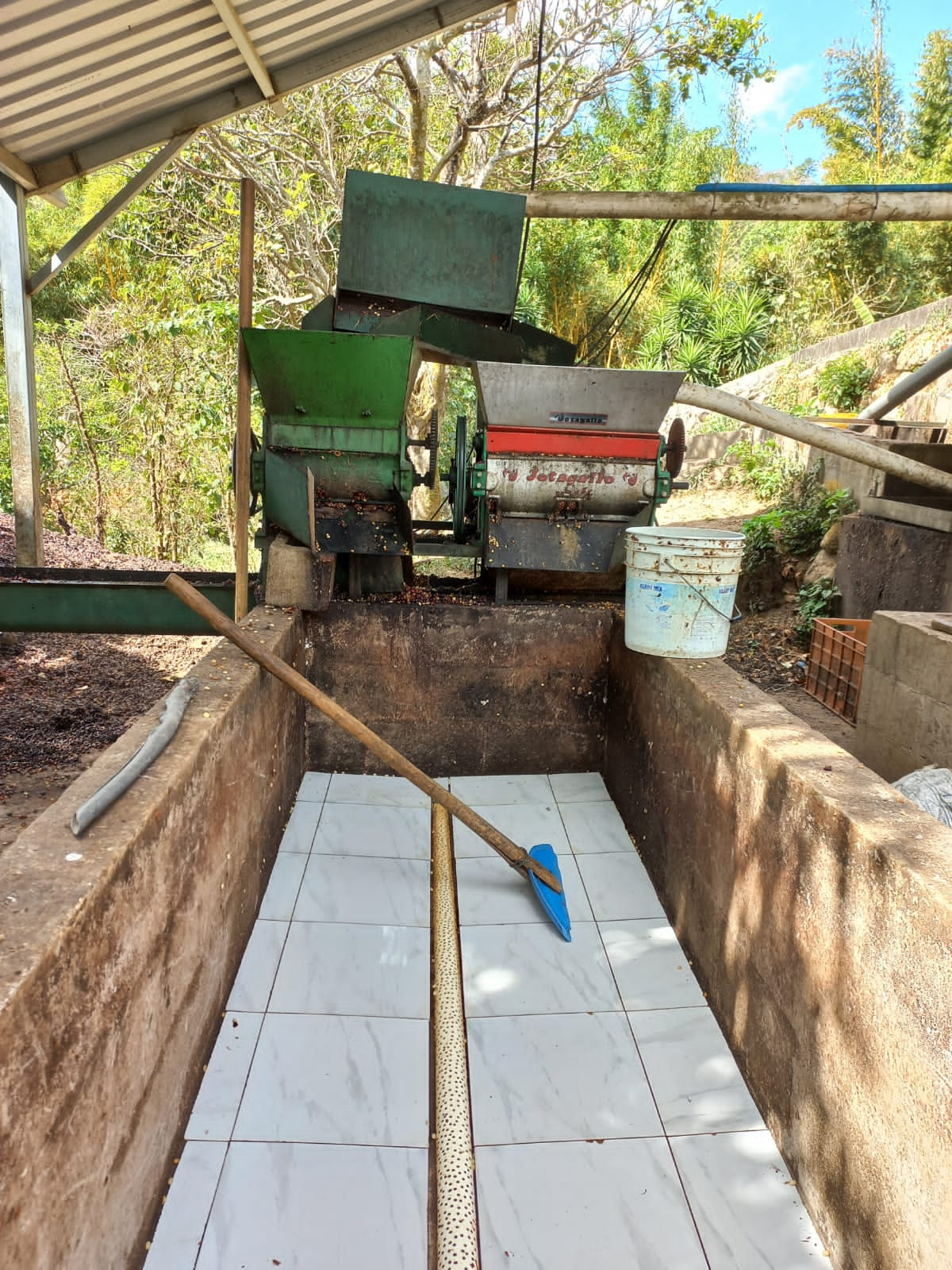1
/
of
5
Jose Angelino El Salvador
Jose Angelino El Salvador
Regular price
€13,00 EUR
Regular price
Sale price
€13,00 EUR
Taxes included.
Quantity
Couldn't load pickup availability
Origin: El Salvador, Chalatenango.
Variety: Pacas
Processing: Washed
Crop year: 2025
Taste like: Cherry, Berries, Jam, Honeycomb.
JOSE ANGELINO LANDAVERDE
FLORES A COFFEE GROWER WHO
KEEPS A FAMILY TRADITION ALIVE
FROM THE HEART.
Angelino's journey into the world o f coffee began with his father, who grew the Pacas
variety a t a time when quality was neither a trend nor a focus for farmers i n the region.
When leaf rust hit the region i n 2012, h e lost all hopes o f succeeding a s a coffee
producer, but somehow found a glimmer of hope in specialty coffee. He decided to lean
more and realized he could find hope and growth in this market. Today, Angelino says, "If
it's not quality coffee, I better not grow it."
When he focused on specialty coffee, the family's income improved, and he was able to
reinvest in the farm and open another business. Angelino manages the farm, his wife
Rosa Elida runs the other business, a roasting and packaging service, and their children
help with farm activities, such as harvesting and supervising the pulping process. Since
they do not have a washing facility on site, they process the coffee in the family's washing
facility, which i s also used by Angelino's uncles and cousins. Jose Angelino says they pick
the cherries that have reached the right level of ripeness, and all the coffee i s sorted b y
hand to remove green, unripe cherries. He typically carries out the natural process for the
Pacamara and Gesha varieties, and Pacas for the washed coffees. The cherries for the
natural process are fermented anaerobically i n clean bags and sacks i n the shade for 60
hours, avoiding direct contact with sunlight. After this time, the cherries are spread out on
the raised beds to dry. The washed coffee, on the other hand, i s harvested the same day,
flooded, and fermentation takes place in concrete piles for 12 to 16 hours, depending on
weather conditions. They are often washed and rinsed two o r three times before being
taken to the drying site.
Jose Angelino says that the varieties he grows today are adapted t o the area, soil, and
weather; he can handle them well. Therefore, he i s proud o f the quality he currently
produces, the good recognition he receives for it, and the satisfactory results. He has
found that the commercial coffee quality does not cover the production costs, mainly
because the farm is in an area that is difficult to access, which increases the production
costs.
FLORES A COFFEE GROWER WHO
KEEPS A FAMILY TRADITION ALIVE
FROM THE HEART.
Angelino's journey into the world o f coffee began with his father, who grew the Pacas
variety a t a time when quality was neither a trend nor a focus for farmers i n the region.
When leaf rust hit the region i n 2012, h e lost all hopes o f succeeding a s a coffee
producer, but somehow found a glimmer of hope in specialty coffee. He decided to lean
more and realized he could find hope and growth in this market. Today, Angelino says, "If
it's not quality coffee, I better not grow it."
When he focused on specialty coffee, the family's income improved, and he was able to
reinvest in the farm and open another business. Angelino manages the farm, his wife
Rosa Elida runs the other business, a roasting and packaging service, and their children
help with farm activities, such as harvesting and supervising the pulping process. Since
they do not have a washing facility on site, they process the coffee in the family's washing
facility, which i s also used by Angelino's uncles and cousins. Jose Angelino says they pick
the cherries that have reached the right level of ripeness, and all the coffee i s sorted b y
hand to remove green, unripe cherries. He typically carries out the natural process for the
Pacamara and Gesha varieties, and Pacas for the washed coffees. The cherries for the
natural process are fermented anaerobically i n clean bags and sacks i n the shade for 60
hours, avoiding direct contact with sunlight. After this time, the cherries are spread out on
the raised beds to dry. The washed coffee, on the other hand, i s harvested the same day,
flooded, and fermentation takes place in concrete piles for 12 to 16 hours, depending on
weather conditions. They are often washed and rinsed two o r three times before being
taken to the drying site.
Jose Angelino says that the varieties he grows today are adapted t o the area, soil, and
weather; he can handle them well. Therefore, he i s proud o f the quality he currently
produces, the good recognition he receives for it, and the satisfactory results. He has
found that the commercial coffee quality does not cover the production costs, mainly
because the farm is in an area that is difficult to access, which increases the production
costs.
Share









